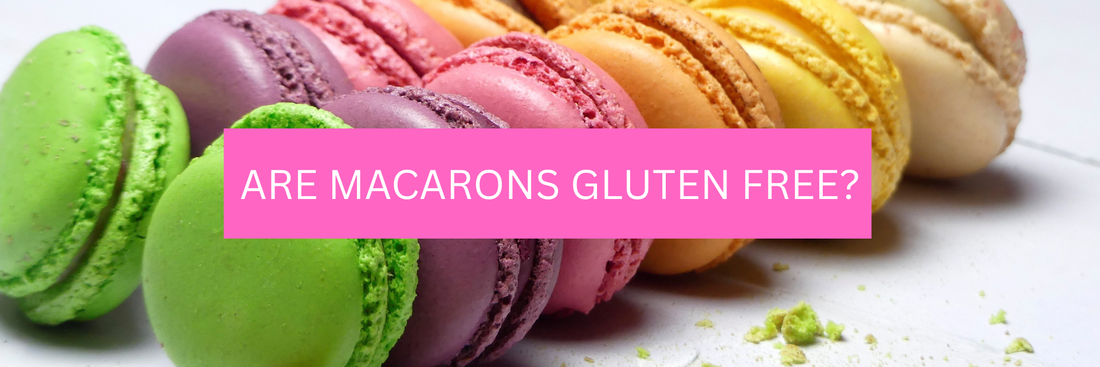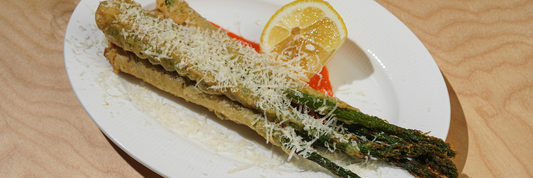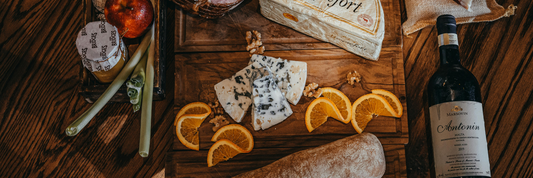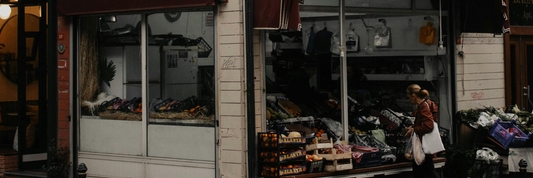Traditional French macarons are naturally gluten free because they are made with almond flour, egg whites, and sugar no wheat flour involved. However, not all macarons are automatically safe for those with celiac disease or gluten sensitivity. The fillings, flavor add-ins, and bakery cross-contamination risks mean you need to be cautious before taking a bite.
Let’s explore in detail what makes macarons gluten free, when they may contain gluten, and how you can enjoy them safely.
- How to Store Macarons: The Complete Guide to Freshness and Flavor
- Macaron Recipe: A Complete Guide to Making Perfect French Macarons
- Macaron Calories: Complete Guide to Nutrition, Serving Size, and Health Facts
What Are Macarons?

Before answering “Are macarons gluten free?”, it’s important to understand what macarons are.
A French macaron is a delicate meringue-based sandwich cookie made from:
- Almond flour (the base that keeps them flourless and gluten free),
- Egg whites,
- Powdered sugar and granulated sugar,
- And a creamy filling such as ganache, buttercream, or jam.
Macarons are naturally flourless desserts, which makes them different from many baked goods that rely on wheat flour.
Don’t confuse them with macaroons a coconut-based chewy cookie. Both are usually gluten free, but they are entirely different desserts.
Macaron Ingredients — Are They Gluten Free?

Almond Flour: The Naturally Gluten-Free Base
The core of every macaron shell is almond flour, which is naturally gluten free and safe for people avoiding wheat. Unlike wheat flour, almond flour comes from finely ground almonds and contains no gluten proteins. This is why almond flour macarons are a staple in gluten free patisserie.
Be careful, though: almond meal (coarser than almond flour) may sometimes be processed in facilities that handle wheat, so check labels for cross-contamination warnings.
Egg Whites and Sugar: Gluten-Free by Nature
Egg whites, powdered sugar, and granulated sugar are essential ingredients in macaron shells. These are naturally gluten free, meaning they don’t add any risk to the recipe.
However, some powdered sugars contain anti-caking agents derived from starch. Most are cornstarch-based (safe), but a small number may come from wheat starch. For peace of mind, always confirm the ingredient label if baking at home.
Fillings: Where Gluten Can Sneak In
While the shells are usually gluten free, the macaron fillings are where things get tricky. Common options include:
- Chocolate ganache (generally gluten free unless flavored with cookies or liqueurs containing gluten).
- Buttercream (safe if made traditionally, but risky if flavorings include cookie crumbs).
- Jam or fruit puree (naturally gluten free).
Potential risks in fillings:
- Crushed cookies, graham crackers, or biscuit crumbs added for texture.
- Candy inclusions or sprinkles made with wheat-based binders.
- Certain flavor extracts or food colorings that may contain gluten.
This is why not every macaron is automatically safe. A visually identical cookie could be gluten free in one bakery but not in another.
Are Store-Bought Macarons Gluten Free?

When people ask, “Are macarons gluten free?” they often mean the packaged ones sold at supermarkets. The answer is: it depends on the brand.
Popular Brands to Consider
- Trader Joe’s macarons: Sometimes gluten free, but product labels have varied depending on seasonal assortments. Always check the ingredient list.
- Costco macarons: Many customers assume they’re gluten free, but some batches have contained wheat-derived glucose syrup.
- Ladurée macarons (famous Parisian brand): Often considered gluten free by ingredients, but not certified gluten free due to potential cross-contact in kitchens.
Always look for a “Gluten-Free” certification label. Phrases like “made in a facility that processes wheat” mean there’s a risk of cross-contamination, which is unsafe for people with celiac disease.
Banana Bread Calories: Complete Nutrition Guide (Per Slice, 100g, Loaf)
Bakery Macarons and Cross-Contamination Risks
If you buy macarons from a bakery, the gluten free status depends on how careful the shop is about handling. Even if the recipe itself is gluten free, the kitchen environment matters.
Common risks include:
- Shared baking trays and parchment paper used for cookies containing wheat.
- Mixers, sifters, or piping bags contaminated with wheat flour dust.
- Staff not changing gloves between handling wheat-based products and macarons.
For people with celiac disease, even trace amounts of gluten can cause harm. That’s why bakeries without dedicated gluten free kitchens can’t guarantee safety.
Tip: If you’re gluten sensitive, always ask:
- “Do you use shared equipment with wheat flour?”
- “Are your macarons made in a certified gluten free facility?”
Are Macarons Safe for Celiac Disease?

For those with celiac disease, eating gluten-free is not optional, it’s a strict medical necessity.
While traditional macarons are gluten free by ingredients, the real issue lies in contamination. Unless the product is certified gluten free or baked in a dedicated gluten free kitchen, it may not be safe for celiacs.
- Safe scenario: Packaged macarons with a “Certified Gluten Free” label.
- Risky scenario: Bakery macarons made in a shared facility, even if they contain no wheat flour.
Homemade Gluten Free Macaron Recipes

One of the safest ways to enjoy macarons on a gluten-free diet is to bake them yourself. Traditional macaron shells are naturally gluten free since they are made with almond flour, egg whites, and sugar. Here’s a simple outline for a homemade gluten-free recipe:
- Shell ingredients: almond flour, powdered sugar, egg whites, granulated sugar, food coloring (gluten free).
- Filling options: chocolate ganache, fruit jam, buttercream (ensure gluten-free flavorings).
- Tips for success:
- Sift almond flour for smooth shells.
- Use kitchen scales for precise measurements.
- Bake in a gluten-free environment to prevent cross-contamination.
Homemade baking gives you full control over ingredients, making your macarons 100% safe for gluten-free diets.
Vegan & Dairy-Free Macaron Options
While macarons are usually gluten free, they are not vegan or dairy free by default. The traditional recipe relies on egg whites for structure and butter/cream for fillings. Luckily, there are alternatives:
- Egg replacement: aquafaba (liquid from chickpeas) can whip into a meringue-like texture.
- Dairy replacement: use vegan butter, coconut cream, or dairy-free chocolate.
- Vegan gluten-free brands: some artisanal bakeries now offer vegan macarons that are also gluten free.
This makes it possible for people with multiple dietary restrictions gluten free, dairy free, or vegan to still enjoy these colorful French treats.
Gluten Free Certifications & Regulations
If you’re buying macarons instead of baking at home, certifications are your safest guarantee. Key points to know:
- In the U.S., the FDA allows products to be labeled “gluten free” if they contain less than 20 ppm gluten.
- Organizations like the Gluten-Free Certification Organization (GFCO) provide stricter third-party verification.
- In Canada and the EU, similar labeling rules apply, with celiac-safe bakery standards.
Always look for a certified gluten-free seal when buying macarons if you have celiac disease.
How to Check if Macarons Are Gluten Free

Before eating or buying macarons, follow this checklist:
- Read the ingredient list (avoid wheat, barley, rye).
- Ask about fillings (thickeners, flavorings, or cookie crumbs may contain gluten).
- Confirm if the bakery has cross-contamination controls.
- Look for a certified gluten-free label.
- When in doubt, choose homemade or buy from trusted gluten-free brands.
This simple checklist helps you avoid hidden sources of gluten.
FAQs About Gluten Free Macarons
1. Are macarons gluten free everywhere?
Not always, traditional recipes are, but some bakeries add gluten-based flavors or risk cross-contamination.
2. Can celiacs eat macarons?
Yes, if they are certified gluten free and made in a safe kitchen.
3. Do macaron fillings contain gluten?
Some fillings use flavorings or cookies that contain gluten. Always check.
4. Are store-bought macarons gluten free?
It depends on the brand. Some are safe, others are not.
5. Are macarons vegan or dairy free?
No, but vegan and dairy-free alternatives exist using aquafaba and plant-based creams.
6. Are macaroons (with coconut) gluten free?
Yes, coconut macaroons are naturally gluten free.
Conclusion
So, are macarons gluten free? Yes, but only if you choose the right kind.
- Traditional recipes are naturally gluten free.
- Cross-contamination and hidden ingredients can introduce gluten.
- Certified brands and homemade baking are the safest choices.
If you want to enjoy macarons without worry, either bake them yourself with safe ingredients or buy from trusted gluten-free bakeries. That way, you get the full macaron experience delicate, colorful, and safe for your diet.




